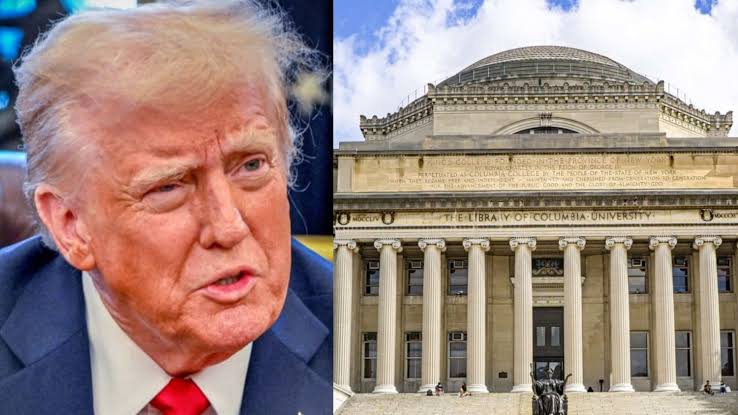A legal battle with massive implications for academic freedom is unfolding as faculty groups at Columbia University sue the Trump administration over drastic funding cuts and controversial new academic demands. The lawsuit, filed in federal court, alleges that the administration’s actions are an unprecedented attack on higher education—one that could set a chilling precedent for universities across the country. But the real question is: what’s the true motive behind these cuts?
At the heart of the lawsuit is a series of funding reductions targeting research programs that faculty claim were politically motivated. The administration has justified the cuts by arguing that universities have become “breeding grounds for anti-American sentiment.” However, professors at Columbia warn that this is a dangerous attempt to control academic discourse. Could this be the beginning of a broader crackdown on intellectual freedom?
Even more disturbing are the additional demands tied to federal research grants. According to faculty members, government officials have pressured universities to alter curricula, introduce new ideological requirements, and even dismiss certain faculty members accused of promoting “radical” ideas. Some fear that these demands echo historical efforts to silence dissent in authoritarian regimes. How far will this intervention go?
Dr. Rachel Lin, a professor of political science and one of the lawsuit’s key plaintiffs, describes the situation in dire terms. “This isn’t just about Columbia—this is about whether universities can remain independent,” she warns. “If the government can dictate what can and can’t be taught, then academic freedom in America is on life support.” With court proceedings looming, the stakes couldn’t be higher.
Behind closed doors, faculty members whisper about the possibility of even deeper repercussions. If the lawsuit fails, could other universities face similar pressure? Some insiders claim that high-ranking officials have already drafted lists of additional schools that could see their funding slashed next. Is this part of a larger campaign to reshape American education?
The Trump administration has remained defiant, calling the lawsuit “frivolous” and accusing Columbia of “protecting left-wing indoctrination.” A spokesperson for the Department of Education suggested that the government has every right to withhold funds from institutions that refuse to align with “American values.” But critics argue that this rhetoric is eerily reminiscent of past efforts to weaponize education for political gain. Are we witnessing a dangerous turning point?
Meanwhile, students and faculty are preparing for what could become a prolonged legal war. Protests have erupted on Columbia’s campus, with demonstrators warning that academic institutions nationwide should brace for similar battles. “If we lose this case,” one student activist declared, “no university in America will be safe from government control.” Could this lawsuit determine the future of academic independence?
As the legal fight intensifies, one thing is certain: this is more than just a dispute over funding. It’s a battle over the soul of higher education itself. And with both sides digging in, the nation may soon face a defining moment—one that could forever alter the balance between government power and intellectual freedom.
